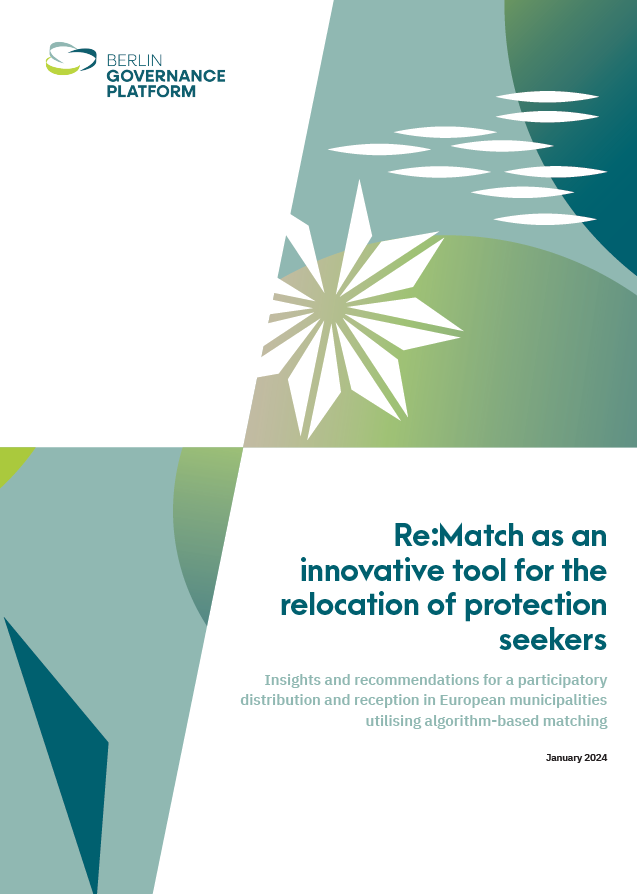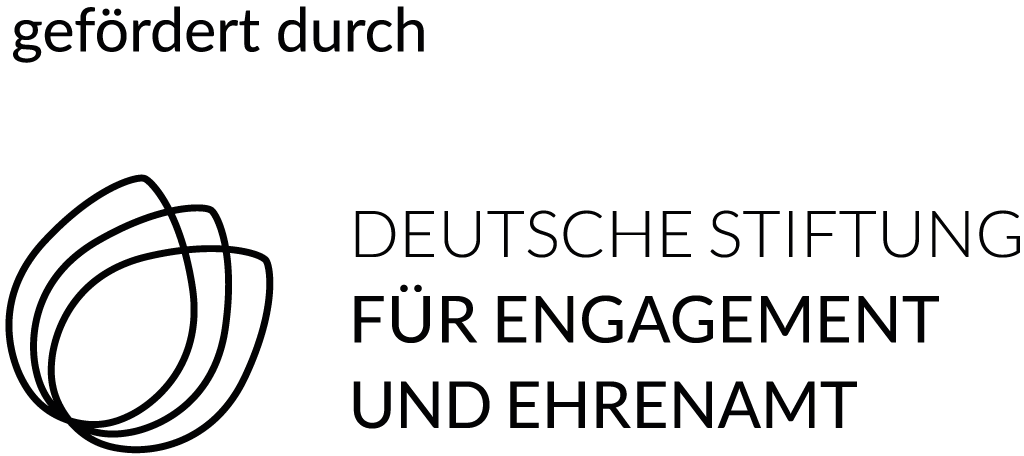Findings and recommendations report of the Re:Match – Relocation via Matching project
Re:Match as an innovative approach for the relocation of people seeking protection. Findings and recommendations for participatory distribution and reception in European municipalities through algorithm-based matching
By piloting Re:Match, relocation of protection seekers within the EU was implemented for the first time using an algorithm-based matching process. Re:Match has developed concrete recommendations based on its experience with programme design, advocacy and scaling.
This report summarises relevant findings and recommendations for decision-makers from politics, municipalities and civil society.
Re:Match looks back on a successful year that was characterised by the collaborative development and piloting of matching criteria and procedures. 78 Ukrainian asylum seekers were matched with German municipalities using algorithm-based matching from Poland, an EU external border state, and supported in their relocation.
The successful piloting of Re:Match has highlighted the potential of relocation via matching – in both technical and political terms. Based on the results and findings of the first project phase, the aim now is to take Re:Match further in terms of both development and application.
Re:Match has acquired unique expertise in the field of relocation via matching and is now focusing on expanding this knowledge. Re:Match harbours considerable potential for a fairer and more effective migration policy in the EU. Relocation via Matching is the tool with which political commitments and obligations from international treaties can be realised in an innovative way.
Re:Match is available both as a co-operation partner and in an advisory capacity – in Germany and in other EU member states.
By piloting Re:Match, relocation of protection seekers within the EU was implemented for the first time using an algorithm-based matching process. Re:Match has developed concrete recommendations based on its experience with programme design, advocacy and scaling.
This report summarises relevant findings and recommendations for decision-makers from politics, municipalities and civil society.
Re:Match looks back on a successful year that was characterised by the collaborative development and piloting of matching criteria and procedures. 78 Ukrainian asylum seekers were matched with German municipalities using algorithm-based matching from Poland, an EU external border state, and supported in their relocation.
The successful piloting of Re:Match has highlighted the potential of relocation via matching – in both technical and political terms. Based on the results and findings of the first project phase, the aim now is to take Re:Match further in terms of both development and application.
Re:Match has acquired unique expertise in the field of relocation via matching and is now focusing on expanding this knowledge. Re:Match harbours considerable potential for a fairer and more effective migration policy in the EU. Relocation via Matching is the tool with which political commitments and obligations from international treaties can be realised in an innovative way.
Re:Match is available both as a co-operation partner and in an advisory capacity – in Germany and in other EU member states.
By piloting Re:Match, relocation of protection seekers within the EU was implemented for the first time using an algorithm-based matching process. Re:Match has developed concrete recommendations based on its experience with programme design, advocacy and scaling.
This report summarises relevant findings and recommendations for decision-makers from politics, municipalities and civil society.
Re:Match looks back on a successful year that was characterised by the collaborative development and piloting of matching criteria and procedures. 78 Ukrainian asylum seekers were matched with German municipalities using algorithm-based matching from Poland, an EU external border state, and supported in their relocation.
The successful piloting of Re:Match has highlighted the potential of relocation via matching – in both technical and political terms. Based on the results and findings of the first project phase, the aim now is to take Re:Match further in terms of both development and application.
Re:Match has acquired unique expertise in the field of relocation via matching and is now focusing on expanding this knowledge. Re:Match harbours considerable potential for a fairer and more effective migration policy in the EU. Relocation via Matching is the tool with which political commitments and obligations from international treaties can be realised in an innovative way.




